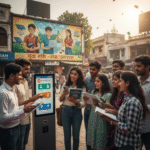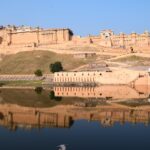Reexamining the Impact of Traditional Beliefs on Modern Indian Society
In India, a nation deeply rooted in diverse traditions and beliefs, the interplay between personal agency and inherited doctrines prompts significant reflection. This discourse explores whether our beliefs truly enrich our lives and empower our communities, or if we find ourselves constrained by these inherited convictions, potentially at the expense of individual and societal progress.
The Impact of Beliefs on Indian Identity
Beliefs in India profoundly influence personal and community life, shaping social norms, legal systems, and daily practices. These beliefs, derived from a rich tapestry of religious and cultural histories encompassing Hinduism, Islam, Christianity, Sikhism, and myriad local traditions, offer a strong sense of identity and community. However, they also raise questions about their adaptability and relevance in a rapidly evolving global landscape.
The Benefits and Drawbacks of Deep-Rooted Beliefs
Benefits:
- Community and Stability: Beliefs foster a strong sense of community. Religious festivals and rituals, such as Diwali, Eid, and Christmas, not only uphold traditions but also reinforce social bonds and collective identity.
- Moral Guidance: Traditions often provide ethical guidelines that help maintain social order and promote welfare. For instance, the concept of ‘Dharma’ in Hinduism emphasizes duties and righteousness, guiding adherents in their personal and social conduct.
Drawbacks:
- Resistance to Change: Deeply ingrained beliefs can impede social progress, especially when they conflict with modern values like equality and human rights. Issues such as caste discrimination and gender inequality highlight the challenges of evolving traditional practices to meet contemporary ethical standards.
- Conformity and Conflict: Strict adherence to traditional beliefs can lead to conformity that stifles individuality and innovation. Moreover, when these beliefs are manipulated for political ends, they can exacerbate communal tensions and lead to conflict.
The Role of Education and Critical Thinking
Promoting education that encourages critical thinking and questioning of established norms can help bridge the gap between traditional beliefs and contemporary needs. Educational initiatives that expose students to a variety of cultural perspectives and encourage open dialogue can cultivate a more adaptable and inclusive society.
Conclusion: Striking a Balance
India’s challenge is to nurture a society where traditional beliefs are respected and preserved while also being dynamic and open to adaptation. Striking this balance requires ongoing dialogue, education, and critical examination of how these beliefs serve the individual and the community. By fostering an environment where beliefs are both cherished and questioned, India can ensure that its rich cultural heritage enriches its modern societal fabric without constraining it.
Disclaimer: This discussion is based on general observations about the role of traditional beliefs in Indian society and does not cite specific statistical data. For detailed studies and statistics, sources like academic journals, government publications, and research from credible organizations such as the Pew Research Center would provide valuable insights.




























